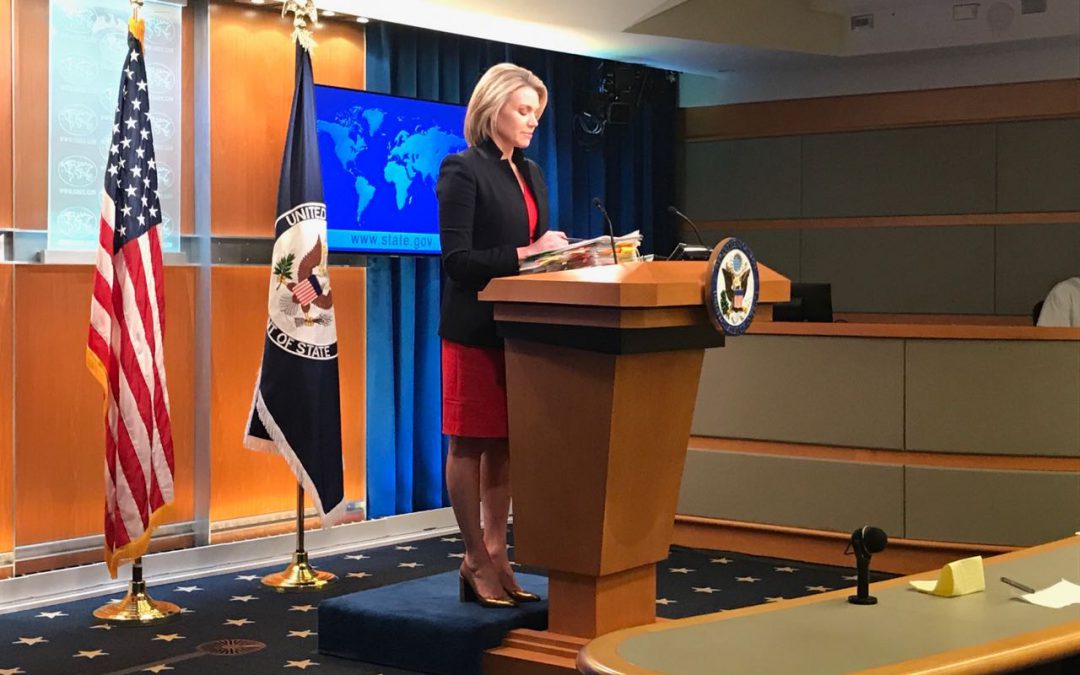WASHINGTON – The State Department on Thursday responded to Russian allegations that the United States is meddling in their upcoming presidential election with a new round of sanctions.
“It’s baloney,” said Heather Nauert, the spokesperson for the Department of State, referring to the Russian government’s allegations.
The new Trump administration sanctions imposed financial and economic penalties on 19 Russian individuals and five organizations for meddling in the 2016 election and for other cyber related attacks targeted at the U.S. electrical grid and water systems.
Nauert said it was a coincidence that the new sanctions were announced by the administration just several days before Russian voters go to the polls on Sunday. Russian president Vladimir Putin is expected to easily win reelection.
“Sanction take a long time to put together, they take a long time to investigate. We roll out sanctions when sanctions are ready to be rolled out.”
“They [Russia] makes lots of wild assertions, and I think that [the U.S. interfering in their election] would be another one,” Nauert said.
The sanctions are the most significant against Russia since President Trump took office more than a year ago. Democrats have been urging the administration to implement them, after Congress overwhelmingly authorized the latest punitive measures.
Congress set a January deadline for imposing the sanctions, but the Treasury Department postponed action.
The sanctions come on the heels of mounting tensions between Russia and Great Britain, which accused the Kremlin of ordering the use of a nerve agent to poison a former Russian intelligence officer and his daughter living in England.
The U.S. joined with Britain, France and Germany in a statement denouncing Russia and calling the attack a violation of international law.
The latest get-tough action by the Trump administration runs counter to the president’s refusal until recently to criticize Putin or fully embrace the U.S. intelligence community’s conclusion that Russia interfered in the 2016 president election.
Trump has insisted that any suggestion Russia tried to swing the vote in his favor as a “hoax” and “fake news,” just as he has called special counsel Robert S. Mueller III’s investigation into whether the Trump campaign colluded with Russia a “witch-hunt.”
In the waning days of the Obama administration, the U.S. imposed sanctions against four Russian individuals and five Russian entities in retaliation for Russia’s meddling in the 2016 election. The Obama administration also ordered 35 Russian diplomats to leave the country and two Russian compounds were seized.

